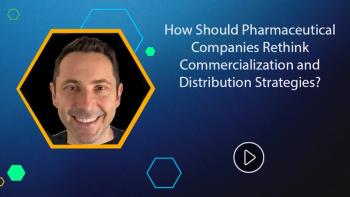
- Pharmaceutical Executive-09-01-2006
- Volume 0
- Issue 0
Marketing to Professionals: Savvy Strategists
These "guns for hire" bring the science and marketing savvy that clients need, often with in-depth category experience, but without the commitment and cost associated with hiring a full-time employee.
Today's brand teams play for extremely high stakes when fighting off competitor challenges. From attacks on clinical-trial interpretation (witness Vioxx), unexpected toxicity (Tysabri), and explosive social issues (Gardasil) to oceans of emerging data (new cholesterol medications such as Zetia and Pfizer's investigational drug torcetrapib), brand teams need to interact with medical and scientific professionals more than ever. Brand managers need scientists to interpret, counsel, and inform them on these issues, but also for a host of other activities, like fielding physician inquiries, reviewing promotional copy, and hobnobbing with KOLs. Yet most pharma companies still "borrow" time from other parts of the organization—typically from their discovery-oriented scientists—to handle these tasks. Only now are some companies beginning to place dedicated marketing-oriented medical experts on brand teams.
Eleanor O'Rangers
Guns for Hire
There aren't enough of these medical experts to go around. Historically, strong medical candidates wouldn't have considered marketing a viable career path. In addition, scientists generally lack commercial experience and don't think strategically for the business. More and more, savvy marketing directors are starting to realize they need to find individuals who possess both skill sets. To fill the growing void, innovative pharma companies are beginning to contract medical/scientific strategists to serve on brand teams. These "guns for hire" bring the science and marketing savvy that clients need, often with in-depth category experience, but without the commitment and cost associated with hiring a full-time employee.
Companies need to consider early in product development whether they need to bring in an outside scientific/medical consultant. Most typically, for both small and large pharma, marketing budgets for Phase I and Phase II products are skeletal, given the high risk that the products will never reach the market. Dedicating full-time medical support to them just doesn't make financial sense. At the same time, lean teams still have a very long list of deliverables, including guiding global strategies, positioning, and clinical development. To achieve these goals, brand teams often struggle to learn about the disease area directly from clinical investigators or KOL-level senior advisors, who invariably bring a scientific (not marketing) orientation to the table. Or they read the unfamiliar literature and attend symposia aimed at practicing clinicians. Not surprisingly, they are not getting the full scientific understanding they need. Hiring freezes or head-count restrictions just make matters worse.
For teams like these, outsourcing offers a strong value proposition. Chosen well, the contract medical/scientific strategists bring with them a commercially focused interpretation of the scientific and commercial drivers of the category, first-name relationships with KOLs and thought leaders, an insider's perspective on the relevant clinical literature, cross-pollination of best practices from similar launches, and a fresh eye unbiased by internal politics. The strategist can be deployed just as an in-house expert would be: developing positioning alternatives, attending congresses, training the brand team, participating in clinical development planning—but without the fixed costs. Companies pay only for the services they need, when they need them. This is particularly useful when companies approach the critical go/no-go development decisions and want to ramp up capabilities while mitigating financial risk.
A Transitional Time
On the discovery side, contract investigators have been a staple of clinical research for decades. However, the outsourcing idea is still new to commercial organizations. Standards are only now emerging for delegating the tasks involved in advising the brand team on medical/scientific issues and strategies.
What Medical/Scientific Strategists Can Provide
Many companies expand brand teams 18 to 24 months before launch, when the product migrates from a pre-commercialization to a launch group. Often, the change in personnel dilutes the institutional learning of the group. In particular, the core science behind the compound tends to get lost. Also, the "not-invented-here" syndrome arises, as the incoming team tries to make its own mark.
A similar transition often occurs post-launch, when the successful launch team moves on to a fresh challenge and a new brand team inherits its work. Having an independent, unbiased medical/scientific strategist on board throughout these transitions helps to preserve important, hard-won market lessons, and accelerates the new team's climb up the learning curve.
Outside specialists also help:
- With pre-commercialization of a new product in a new therapeutic area—as early as late Phase I when teams are typically under-resourced
- Plan launches in unusually crowded, complex or competitive categories—where a strategist with category experience can enrich discussions of marketing strategy and assist in a variety of tasks, including message mapping, competitive counter-strategies, scientific messaging, publication planning, and choosing advisory boards
- When the pharmaceutical company is small or newly formed
- Increase capacity for coordinating medical education, clearing copy, and responding to physician inquiries.
What to Look For
When selecting an outside medical/scientific strategist, companies should look for PharmD or MD credentials, and for brand-team experience inside top-tier pharmaceutical companies. Although a PhD with experience on a brand team should not be uniformly discounted, a clinical degree, coupled with commercial savvy, is more frequently the mark of a strong candidate.
Field experience (as a medical scientific liaison, or similar) is an added bonus, because these positions involve direct contact with practicing prescribers, and also expand the commercial insight of the strategist. Moreover, liaisons are required to remain current on disease-state and product knowledge, and work every day in an environment that rewards skill in negotiation and persuasion. (These are talents that serve the savvy strategist when advising brand teams.) Other skills to look for include:
- Entrepreneurial experience; creative thinkers with outstanding communication skills bring a strong science and commercial knowledge
- Experience analyzing and interpreting clinical results for diverse audiences, including science and industry professionals and laymen
- Strong reputation within the industry for resourcefulness, persistence, integrity, and results
- Access to resources to help gather and disseminate needed information.
The Right Fit
Most strategists available for these jobs are affiliated with medical/scientific strategy firms, medical-education companies, and consulting organizations. But there are a few solo practitioners as well. Medical-education companies support the strategist and the client through information resources, advisory boards, slide-kit and graphics development, white papers, and speaker materials. If you're looking to find an outside strategist, ask your own medical staff and medical-education managers for referrals.
The strategist should ideally report to the brand or category director within the marketing department of the company. Funding should come from marketing budgets, usually as a separate line item. And the tasks assigned should be marketing focused: providing preceptorships to the brand group, reviewing market research, providing competitive intelligence, and writing field force communiqués for launched brands. Strategists typically bill by the project or by the hour and retainer arrangements help ensure continuity of service.
Companies will hire more medical/scientific strategists in the next few years. Savvy marketers say that companies should interview strategists now, in an effort to anticipate future needs.
Eleanor O'Rangers is VP, cardiovascular/metabolic brand strategist, Phase Five Communications. She can be reached at
Articles in this issue
over 19 years ago
From the Editor: Undecidedover 19 years ago
Thoughtleader: Small Cost, Big Winover 19 years ago
Leadership: Living to be 100over 19 years ago
Global Report: Break with Traditionover 19 years ago
Washington Report: New Partnerships Pursue Old Diseasesover 19 years ago
Legal: Authorized Generics: Still Legal—and Holdingover 19 years ago
Public Accessover 19 years ago
Industry Auditover 19 years ago
Pharm Exec Q&A: A Soft Spot for Whistleblowersover 19 years ago
Freedom of InformationNewsletter
Lead with insight with the Pharmaceutical Executive newsletter, featuring strategic analysis, leadership trends, and market intelligence for biopharma decision-makers.




